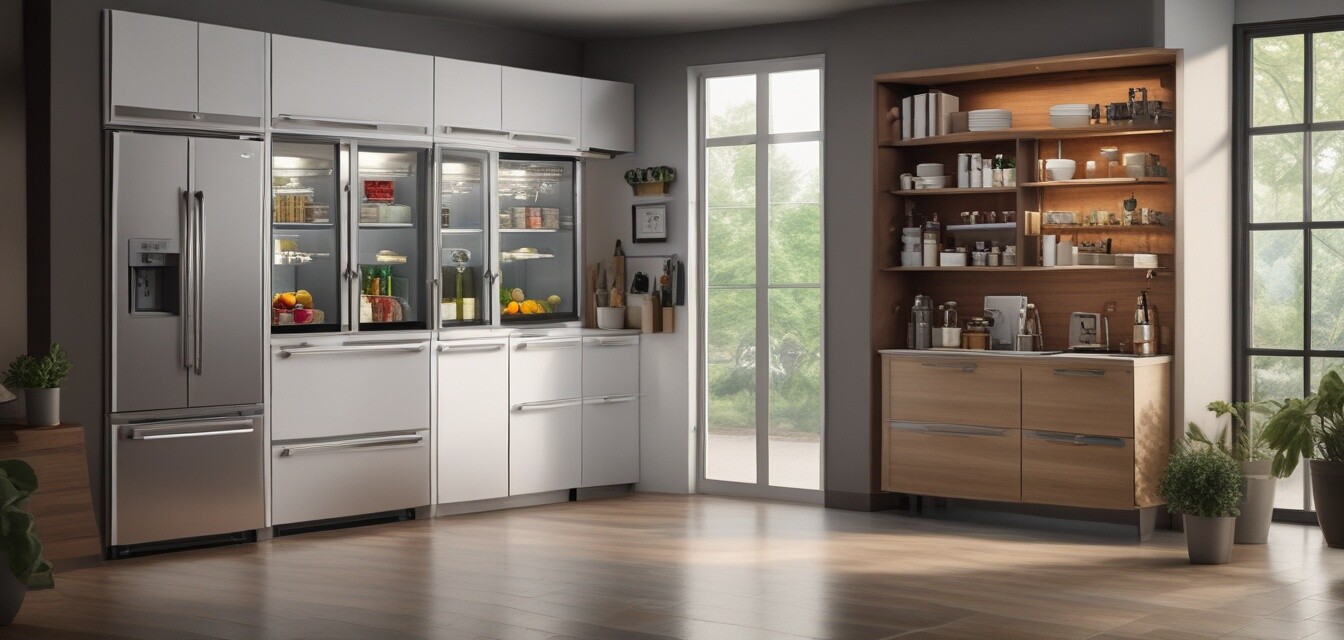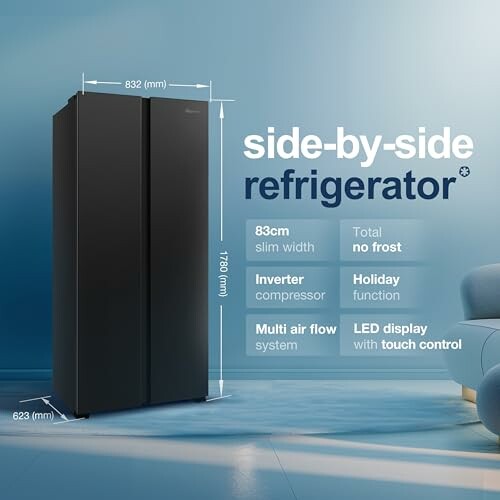
Best Practices for Operating Refrigerators Efficiently
Key Takeaways
- Keep the refrigerator at optimal temperatures (between 37°F and 40°F).
- Regularly clean and maintain to ensure energy efficiency.
- Organize contents to optimize airflow and accessibility.
- Use energy-efficient models for enhanced savings.
- Monitor door seals for leaks that waste energy.
Refrigerators are a significant part of our daily lives, serving the essential function of preserving food while also consuming a considerable amount of energy. Operating your refrigerator efficiently is crucial not only for saving on electric bills but also for reducing your carbon footprint. In this guide, we’ll provide practical tips on how to get the most out of your refrigerator, ensuring optimal performance and maintenance for energy efficiency throughout its lifespan.
Understanding the Basics of Refrigeration
Before delving into best practices, it's vital to understand how refrigerators work. Refrigerators eliminate heat from their interior using a refrigerant cycle, keeping food at safe temperatures to prevent spoilage. Here are some basics on refrigerator types and energy consumption:
| Refrigerator Type | Average Energy Consumption (kWh/year) |
|---|---|
| Top Freezer | 500 - 600 |
| Bottom Freezer | 550 - 650 |
| Side-by-Side | 600 - 750 |
| French Door | 600 - 800 |
Set the Right Temperature
For efficient operation, set your refrigerator's temperature between 37°F and 40°F (3°C to 4°C) for the fridge compartment and 0°F (-18°C) for the freezer. Consistent temperatures help maintain freshness while reducing energy consumption.
Choose Energy-Efficient Appliances
If you are considering a new refrigerator, opt for models with higher energy ratings. Energy-efficient appliances, like the Fridgemaster MS83430EB Freestanding Slim American Side by Side Door Fridge Freezer, can make a difference in energy savings.
Fridgemaster MS83430EB Freestanding Slim American Side by Side Door Fridge Freezer
This fridge features a 441L capacity, total no frost technology, and an inverter compressor for efficient cooling.
Learn MoreRegular Maintenance
To ensure long-term efficiency, regular maintenance of your refrigerator is necessary. Here are some tips:
- Clean the condenser coils at least twice a year to prevent dust buildup.
- Check door seals for leaks and replace if necessary.
- Defrost manual models regularly to avoid ice buildup.
Organize for Efficiency
Keep your refrigerator organized. An organized fridge allows for better airflow and reduces the time the door is open. Here are some tips for organization:
- Store frequently used items at eye level.
- Label items to find them faster.
- Keep similar items grouped together for easy access.
Pros
- Reduces food waste by keeping items fresher
- Decreases electricity bills with efficient operation
- Longer lifespan for appliances with proper care
Cons
- Requires regular maintenance
- Initial cost for energy-efficient models can be higher
Optimize Airflow
Good airflow is essential for maintaining low temperatures in a refrigerator. Here are some tips to optimize airflow:
- Do not overcrowd the shelves.
- Leave space between items to allow air to circulate.
- Aim for a mix of both cold and slightly warm items, as this encourages airflow.
Use Smart Technology
Consider using smart appliances equipped with technology that monitors and optimizes energy consumption. You can learn more about such energy monitoring devices that assist in managing your home’s energy effectively.
Final Thoughts
Operating your refrigerator efficiently involves understanding how it works, performing regular maintenance, and being mindful of how you organize food items. By following these best practices, you're not only saving energy and money but also contributing to a greener environment. If you're in the market for upgrading your appliance, explore sustainable options like the Fridgemaster MQ79394EB Freestanding American 4 Door Fridge Freezer.
Fridgemaster MQ79394EB Freestanding American 4 Door Fridge Freezer
This model offers a 427L capacity with innovative features to enhance food preservation.
Learn MoreExtra Tips for Beginners
- Start by reading the user manual for specific settings.
- Use temperature monitoring devices to track interior temperatures.
- Create a calendar reminder for regular maintenance tasks.
By implementing these practices, you enhance the lifespan and efficiency of your refrigerator, making it a greener choice for your home.
